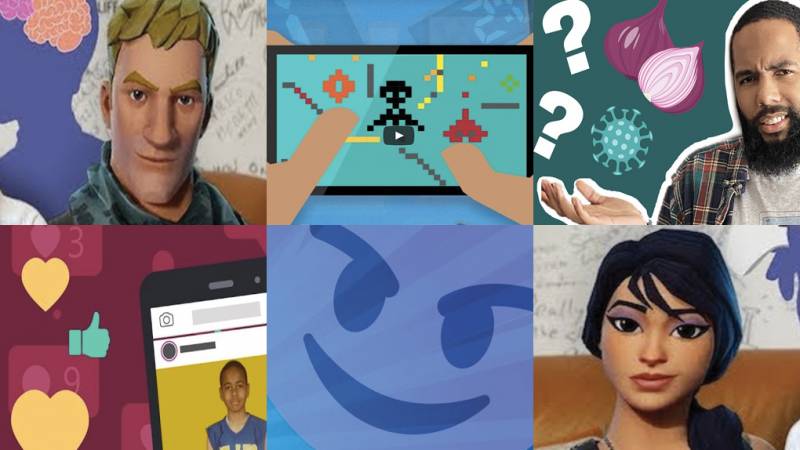Let’s be honest: we are all going to be on our devices a little more this summer. But what should that look like, and how much time online is too much? KQED’s Above the Noise videos explore the research behind everything from video game addiction to whether the internet makes us meaner. Invite students and families into a conversation about online wellness using this playlist and explore bonus activities to get off the couch for some old-fashioned family fun.
Video Game Addiction: Is it Real?
From game crazes like Fortnite or Animal Crossing to old favorites like Super Mario Bros., we are all playing plenty of games these days. And that has some people worried. The World Health Organization officially recognized “Gaming Disorder” as a mental health condition. But the American Psychiatric Association isn’t convinced. So what’s going on? Is video game addiction REALLY a thing?
Screentime: How Much Is Too Much?
Even by conservative estimates, the average American spends over six hours per day staring at a screen. That’s a lot of time. So what does the scientific research say about screentime? Is it good or bad for us?
Is the Internet Making You Meaner?
If the internet’s making you feel meaner, you’re not imagining it. People really do act differently online than they do in person. In this episode, find out why.
How Do Different Social Media Platforms Affect Your Mood?
Do a quick Google search on how social media affects your mood, and the results make it seem like all the social media platforms will plunge you into depression. Facebook shows everyone’s perfect life and exotic vacations. Expertly curated selfies abound on Instagram. But, if you look at the actual research, the results aren’t that simple.
